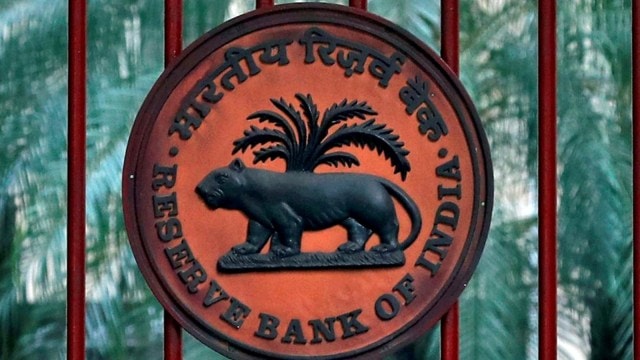RBI asks credit bureaus, banks to pay Rs 100 compensation per day for delay in data updation
Further, CIC should inform the customers by email or SMS when their credit information is sought by a bank or NBFC and banks should inform customers when they are in default.
 In order to institutionalize a continuing mechanism for reviewing and making changes where necessary in the data formats, a Technical Working Group (TWG) should be formed, the RBI said. (File)
In order to institutionalize a continuing mechanism for reviewing and making changes where necessary in the data formats, a Technical Working Group (TWG) should be formed, the RBI said. (File)
With customers facing inordinate delays in data updation by credit information companies (CICs) and credit institutions (CIs) like banks and finance companies, the Reserve Bank of India (RBI) has directed them that complainants should be given a compensation of Rs 100 per calendar day in case their complaint is not resolved within a period of 30 calendar days from the date of the initial filing of the complaint by a customer with a CI or CIC.
Further, CIC should inform the customers by email or SMS when their credit information is sought by a bank or NBFC and banks should inform customers when they are in default.
Banks should pay compensation to the complainant if they have failed to send updated credit information to the CICs by making an appropriate correction or addition or otherwise within 21 calendar days of being informed by the complainant or a CIC, the RBI said.
“A CIC shall pay compensation to the complainant if the CIC has failed to resolve the complaint within 30 calendar days of being informed by the complainant or a CI, despite the CI having furnished the updated credit information to the CIC within 21 calendar days of being informed by the complainant or the CIC,” RBI said in its Master Direction on Credit Information Reporting.
Currently, there are four CICs which are authorised by the RBI: TransUnion CIBIL, CRIF High Mark, Equifax and Experian.
The complainant should be advised by the CI/ CIC of the action taken on the complaint in all cases, including the cases where the complaint has been rejected. In cases of rejection, the reasons for rejection shall also be provided by CI and CIC, it said.
The major complaint of customers was the mishandling of data correction requests from them. Delays in reporting updated credit information has turned out to be a glaring loophole in the country’s credit reporting system, with credit information companies relying solely on data fed by banks without verifying its accuracy. This has led to numerous instances of incorrect default information being reported, causing undue hardship to individuals. Despite requests from customers, these errors are not reviewed or corrected, highlighting a clear bias towards banks.
The RBI said CICs should send alerts through SMS/ email to customers when their credit information report (CIR) is accessed by the specified users (SUs), wherever mobile number/ email ID details of the customers are available. The alerts should be sent by CICs only when the CIR enquiry reflects in the CIR of the customer, it said.
Further, CIs should send alerts through SMS/ email to customers while submitting information to CICs regarding default/ days past due (DPD) in existing credit facilities, wherever the mobile number/email ID details are available, the RBI said.
Banks and NBFCs should inform the customers the reasons for the rejection of their request for data correction, if any, to enable such customers to better understand the issues in the CIR, the RBI said. A list of reasons for rejection of requests should be circulated by CICs to all CIs. CIs should use the same while communicating the rejections of the request for data correction made by customers/ CICs during the grievance redress process, it said.
In order to institutionalize a continuing mechanism for reviewing and making changes where necessary in the data formats, a Technical Working Group (TWG) should be formed, the RBI said.
TWG should review the data reporting formats, at least once a year, and make recommendations, if any, to the Reserve Bank in this regard. It should frame rules on data fields for all data reporting formats, viz., consumer, commercial, micro finance (MFI) segments. The data formats after finalisation by the Group will be submitted to RBI for approval.
- 01
- 02
- 03
- 04
- 05






























